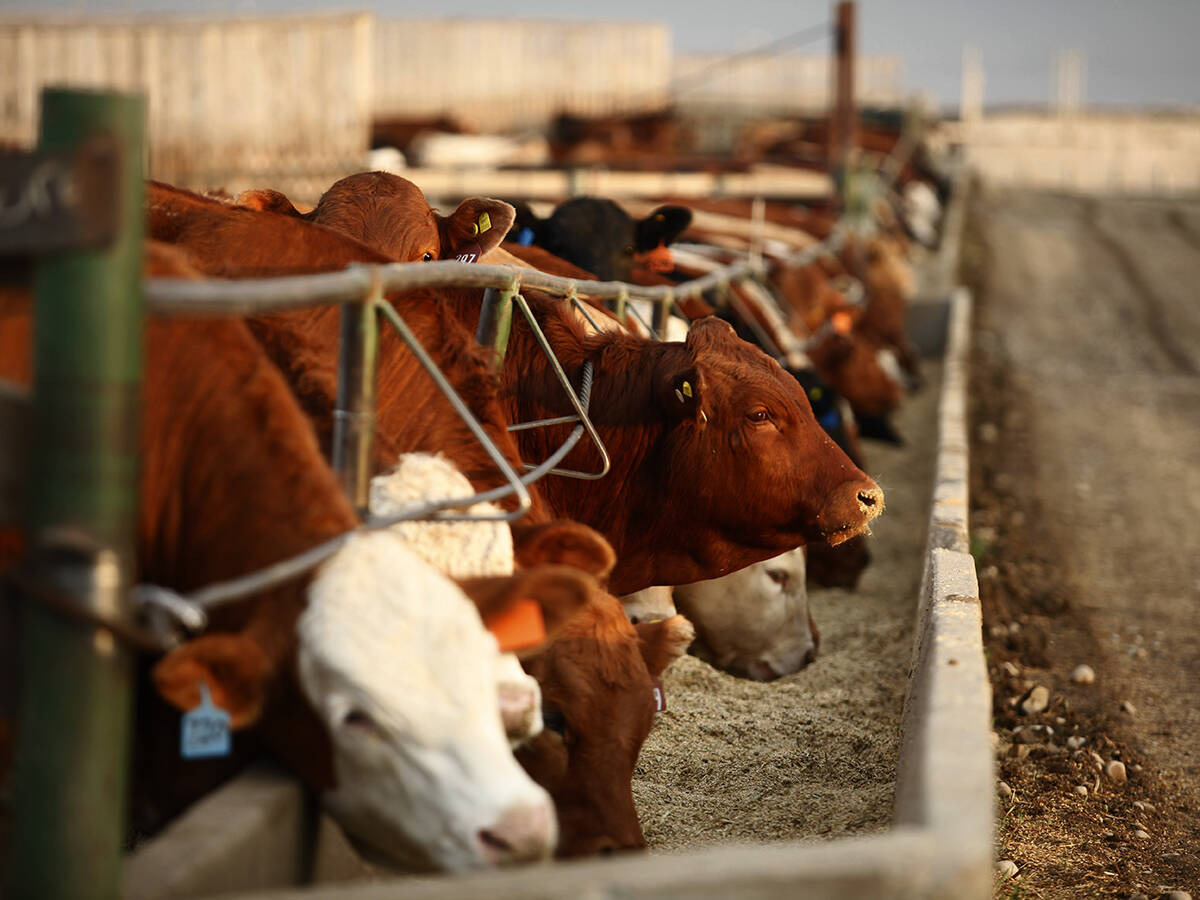Washington | Reuters — The U.S. and Mexico agreed on Monday to overhaul the North American Free Trade Agreement (NAFTA), putting pressure on Canada to agree to new terms on auto trade and dispute settlement rules to remain part of the three-nation pact.
Auto stocks soared and financial markets firmed on the expectation that Canada would sign on to the deal by the end of the week and ease the economic uncertainty caused by U.S. President Donald Trump’s repeated threats that he would ditch the 1994 accord.
Read Also

U.S. livestock: Cattle extend gains on improving cash prices, packer demand
Reuters — Chicago Mercantile Exchange live cattle futures set a three-week high and feeder cattle hit their highest level in…
Details of gains and concessions in the deal were only starting to emerge on Monday. Trump threatened he still could put tariffs on Canadian-made cars if Canada did not join its neighbours and warned he expected concessions on Canada’s dairy protections.
“I think with Canada, frankly, the easiest we can do is to tariff their cars coming in. It’s a tremendous amount of money and it’s a very simple negotiation. It could end in one day and we take in a lot of money the following day,” Trump said.
Negotiations between the three trade partners have dragged on for more than a year, putting pressure on the Mexican peso and the Canadian dollar, both of which gained against the U.S. dollar after Monday’s announcement.
The political stakes are high for all three countries. Trump and Republicans in the U.S. Congress up for reelection in November want to ensure farmers and other voters whose jobs depend on trade with Canada and Mexico that the deal is sealed.
Mexican President Enrique Pena Nieto wants to sign the agreement before leaving office at the end of November, and Canadian Prime Minister Justin Trudeau faces a national election expected by October 2019.
Canada plans to continue to negotiate, but would only sign a new agreement that is good for the country, a spokesman for Canadian Foreign Minister Chrystia Freeland said.
Freeland is expected to travel to Washington for talks on Tuesday, spokesman Adam Austen said.
Trump spoke with Trudeau on Monday, his economic adviser Larry Kudlow told reporters. The deal with Mexico should serve as a “reset” for talks with Canada, Kudlow said.
Mexican Foreign Minister Luis Videgaray told a news conference in Washington that if Canada and the U.S. do not reach an agreement on NAFTA, “we already know that there will still be a deal between Mexico and the United States.”
Officials said they hope Canada will agree to the terms by Friday, when the White House plans to formally notify Congress that Trump will sign the deal in 90 days. Congress has to approve it.
“There are still issues with Canada but I think they could be resolved very quickly,” a senior trade official told Reuters in an interview.
If talks with Canada are not wrapped up by the end of this week, Trump plans to notify Congress that he has reached a deal with Mexico, but would be open to negotiations with Canada, U.S. Trade Representative Robert Lighthizer told reporters.
Some Republicans in the U.S. Congress called the deal a positive step but said Canada must be part of the new pact to avoid hurting U.S. jobs.
New auto rules
The U.S., Mexico and Canada do more than US$1 trillion in trade between them every year.
Trudeau spoke to Pena Nieto on Sunday and shared their commitment to reaching a successful conclusion of NAFTA “for all three parties” the prime minister’s office said.
The Mexico-U.S. discussions focused on crafting new rules for the automotive industry, which Trump has put at the heart of his drive to rework the pact he has repeatedly described as a “disaster” for American workers.
Matt Blunt, president of the American Automotive Policy Council, which represents General Motors, Ford and Fiat Chrysler, said the group was optimistic about the new deal, though it was still reviewing the details.
The deal would require 75 per cent of auto content to be made in the NAFTA region, up from the current level of 62.5 per cent, a U.S. trade official said. A fact sheet describing the bilateral agreement specified the content would be made in the U.S. and Mexico.
The Trump administration said the deal improves labour provisions, in part by requiring 40 per cent to 45 per cent of auto content to be made by workers earning at least $16 per hour — a salary that could remove incentives for automakers to move jobs to Mexico.
The U.S. relented on its demand for an automatic expiration for the deal, known as a “sunset clause.”
Instead, the U.S. and Mexico agreed to a 16-year lifespan for the deal, with a review every six years that can extend the pact for 16 years, U.S. Trade Representative Lighthizer said.
Mexico agreed to eliminate dispute settlement panels for certain anti-dumping cases — a move that could complicate talks with Canada, which had insisted on the panels.
Monday’s announcement lifted equity markets in all three countries, with shares in automotive companies standing out on relief that the deal appeared to end the uncertainty that has dogged the sector for months.
GM, Ford and Fiat Chrysler gained between 3.3 per cent and 4.8 per cent, while Canadian auto parts makers such as Magna International gained 4.6 per cent.
— Reporting for Reuters by Roberta Rampton and Jeff Mason; additional reporting by Sharay Angulo, David Lawder, Dave Graham, Andrea Hopkins and David Shepardson.















